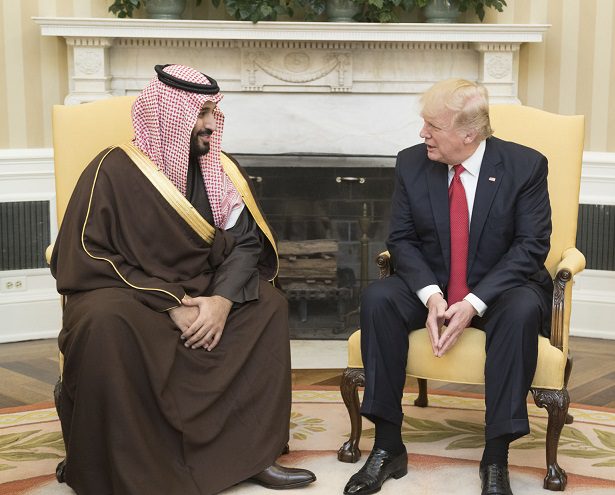Note: All submitted events must be approved before they appear in the calendar.


Profs and Pints presents: “Our Troubled Saudi Ties,” with Hussein Ibish, senior resident scholar at the Arab Gulf States Institute.
Since the 1940s, the partnership between Riyadh and Washington has been a mainstay of Middle East security and US foreign policy. It has survived serious disputes such as the 1973 oil embargo, decades of Arab-Israeli conflict, the 9/11 terrorist attacks and the 2003 invasion of Iraq. Yet the October murder of Saudi journalist and government critic Jamal Khashoggi by Saudi government agents has prompted a nearly unprecedented public and political backlash in the United States against the Saudi royal family and, especially, the 33-year-old Crown Prince, Mohammed bin Salman, widely suspected of orchestrating the killing.
Outrage over the Khashoggi murder has dovetailed with other criticisms of Saudi Arabia, especially over its war in Yemen, which has led to at least 10,000 deaths and a humanitarian crisis. Democrats poised to retake a majority in the House of Representatives have vowed a deep dive into the US-Saudi relationship and are likely to investigate these matters. Republican internationalists in the Senate such as Bob Corker, Lindsey Graham and Marco Rubio also are focusing their wrath on Saudi conduct. All are putting pressure on the Trump administration, which has closely associated itself with the Saudi royal family, to rethink foreign policy.
The US-Saudi relationship won’t be altered without a major strategic reset for both countries. The two nations have military ties and intelligence links, cooperate on counterterrorism, and work together to stabilize and manage global energy markets. The Trump administration deeply values numerous transactional aspects of the relationship, such as weapons sales, technology transfer, diplomatic support, cultural and educational exchange, and diplomatic cooperation, which could suffer. A breach between the two threatens key aspects of the Trump administration’s Middle East policies that depend on Saudi support, including bolstering US trade, applying “maximum pressure” against Iran, and getting the Gulf states to buy into a new approach to Israeli-Palestinian peace. If US-Saudi relations can’t remain in a business-as-usual mode given the Khashoggi murder and aspects of the Yemen war, what can be accomplished down the road?
Gain a rich understanding of what hangs in the balance with Dr. Hussein Ibish, a weekly columnist for Bloomberg Opinion and The National (UAE) who has lectured at scores of universities and trains faculty members on how to teach the Middle East. Dr. Ibish, a longtime friend of Jamal Khashoggi, will use the current crisis as a springboard to examine the future of US foreign policy in the Gulf and the broader Middle East.
Advance tickets available at https://profsandpintssaudiarabia.brownpapertickets.com